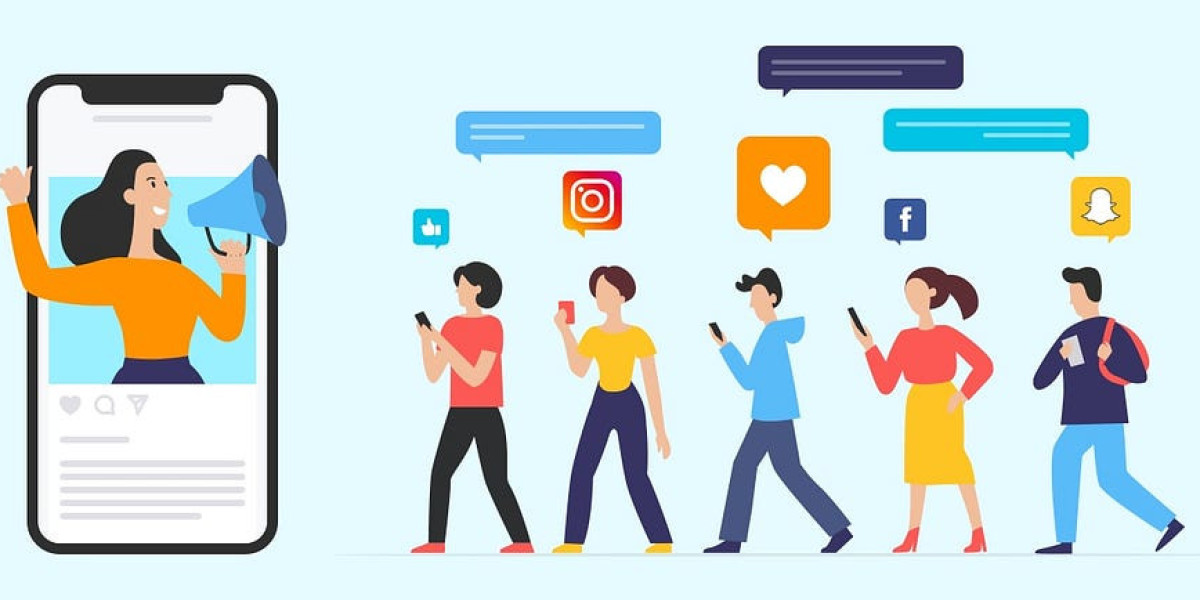In the ever-evolving digital landscape of 2025, influencer marketing remains one of the most effective strategies for driving app and game growth. While new advertising tools and automation platforms continue to emerge, the power of human influence still outperforms many modern marketing tactics. Users crave authenticity, connection, and real experiences qualities that influencers deliver naturally through their communities.
For app and game developers, influencer marketing offers something unique: credibility. People trust influencers more than traditional ads because their recommendations feel personal and relatable. Whether it’s a tech reviewer showcasing a new mobile game or a lifestyle creator promoting a productivity app, influencer partnerships help brands reach audiences that traditional campaigns often miss.
Authenticity Drives Higher Engagement
Influencer marketing thrives because it connects real people with real experiences. In 2025, audiences are increasingly skeptical of overly polished ads and algorithm-driven content. They want transparency and honesty. Influencers bridge this gap by sharing genuine opinions about apps and games they actually use.
For instance, when a gamer streams their experience using a new app or mobile game, viewers witness authentic interactions rather than scripted demonstrations. This type of organic engagement builds trust and drives stronger download intent.
Micro-influencers, in particular, have gained popularity because their audiences are more loyal and niche-focused. Their recommendations carry emotional weight, making them ideal for developers seeking to grow highly engaged user bases.
Data-Driven Influencer Campaigns
Influencer marketing is no longer based on intuition. Advanced analytics tools now measure every aspect of a campaign from impressions and click-through rates to retention and conversion. AI helps identify which influencers have the best alignment with target audiences.
Developers can track engagement metrics in real time to optimize ongoing campaigns. This data-driven approach ensures that influencer marketing remains measurable, scalable, and performance-oriented.
Moreover, machine learning tools predict which influencer collaborations will generate the highest ROI, helping marketing teams allocate budgets efficiently. This level of precision is why influencer marketing continues to outperform many paid ad formats even in 2025.
Leveraging Cross-Platform Promotion
One of the biggest strengths of influencer marketing lies in its ability to reach audiences across multiple platforms simultaneously. Influencers today operate on ecosystems not just YouTube or Instagram, but also Twitch, TikTok, and emerging platforms like Threads and Kick.
This cross-platform exposure ensures that an app or game gains visibility in multiple contexts. For instance, a gaming influencer might preview a new title on Twitch, share highlights on TikTok, and post reviews on YouTube, creating a comprehensive marketing loop.
Cross-platform storytelling keeps users engaged longer, reinforcing brand memory and encouraging more downloads. To make the most of this strategy, partnering with an experienced app development company can ensure the product itself delivers the seamless user experience audiences expect after discovery.
Turning Influencer Communities into Game Communities
The line between influencers and community builders is blurring. Successful developers don’t just use influencers for promotion they integrate them into the app’s ecosystem.
In 2025, brands collaborate with influencers to host in-game events, live tournaments, and exclusive digital meetups. This approach converts passive viewers into active community members who share, compete, and create content together.
Gamers, for instance, feel more connected when their favorite creators become part of the in-game experience. Developers who provide influencers with early access, branded skins, or co-branded events can turn fans into loyal ambassadors who sustain the game’s popularity long after the initial release.
This community-driven model keeps engagement high and reduces churn rates a critical factor in long-term app growth.
The Role of Mobile-Specific Influencers
As mobile gaming continues to dominate the global market, influencers who specialize in mobile-first content are becoming indispensable. These creators understand how to communicate app features effectively in short, visually engaging formats.
From quick tutorials to daily challenges, mobile influencers help users understand the app’s value instantly. Their ability to simplify complex features makes them essential partners for developers targeting younger or on-the-go audiences.
Working with influencers who focus on mobile experiences also ensures higher quality engagement on mobile platforms, where most app store traffic originates. Collaborating with an android app development agency can help developers align their design, marketing, and analytics strategies to ensure influencer-driven traffic translates into active users and long-term retention.
Influencers as Co-Creators
In 2025, influencer marketing is no longer a one-way street. Many influencers now act as creative collaborators, contributing to content strategy, design input, and even feature ideas.
When developers invite influencers to participate in beta tests or early feedback sessions, they create a sense of ownership that strengthens campaign authenticity. Influencers who feel valued are more likely to produce passionate, high-quality content.
This co-creation approach benefits both sides. Developers gain valuable insights into user behavior, while influencers enhance their credibility by offering exclusive, behind-the-scenes access to their followers. The result is marketing that feels personal, not promotional.
The Power of Niche Communities
Broad exposure is valuable, but niche audiences drive deeper loyalty. Influencer marketing allows developers to target specific user segments such as fitness enthusiasts, puzzle gamers, finance app users, or productivity seekers.
These micro-communities respond strongly to personalized marketing because they share similar goals or interests. When an influencer who understands their needs recommends an app, conversion rates skyrocket.
Developers who nurture these communities with follow-up content, rewards, or collaborations can sustain growth over time. In 2025, relevance is the key to retention and influencers provide that precise connection.
Integrating Influencer Marketing with ASO and Paid Ads
Influencer campaigns don’t exist in isolation. They complement App Store Optimization (ASO) and paid user acquisition strategies. The visibility boost from influencer content drives organic traffic to app store listings, improving ranking performance.
When influencer videos or reviews feature optimized keywords, they also contribute indirectly to discoverability. Meanwhile, retargeting ads aimed at users who interacted with influencer content ensure consistent engagement across touchpoints.
This synergy creates a marketing ecosystem where influencers attract attention, ASO sustains visibility, and paid ads scale growth efficiently.
AI-Enhanced Influencer Discovery
Artificial intelligence continues to transform influencer selection. Modern tools analyze tone, engagement authenticity, follower demographics, and even emotional resonance. This ensures collaborations feel genuine and align with brand identity.
AI also detects fake engagement or follower inflation, protecting brands from wasted investment. For developers, these insights mean influencer campaigns can focus entirely on creators who truly influence purchasing behavior, not just vanity metrics.
With automation managing logistics and analysis, marketing teams can focus on creativity and storytelling two timeless ingredients of great influencer marketing.
Influencer Marketing in the Metaverse Era
As virtual worlds and metaverse ecosystems expand, influencer marketing is finding new frontiers. Virtual influencers, AI avatars, and digital creators are redefining how users experience app and game promotions.
These digital personalities can appear in multiple environments simultaneously, hosting virtual events or showcasing gameplay directly inside metaverse spaces. For developers, this opens vast new opportunities to engage audiences interactively.
In 2025, influencer marketing will not just be about brand partnerships it will be about world-building. Developers who embrace immersive storytelling will lead this evolution.
Conclusion
Influencer marketing remains crucial for app and game growth because it taps into something algorithms can’t replicate human trust. In a crowded digital ecosystem, authenticity, relatability, and emotional connection still drive conversions more effectively than automated ads.
By combining influencer marketing with modern tools, community building, and cross-platform engagement, developers can transform discovery into loyalty. As the digital landscape continues to evolve, one truth remains constant: people trust people.
And as long as that’s true, influencer marketing will continue to shape the future of apps and games one loyal user at a time.








